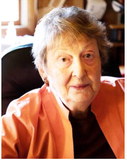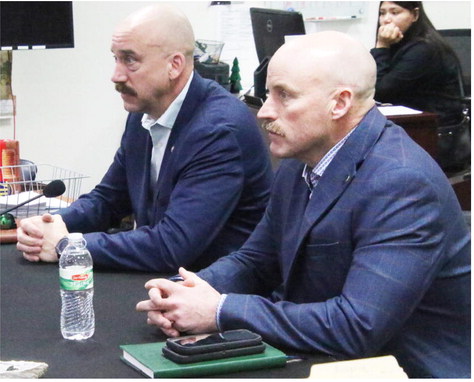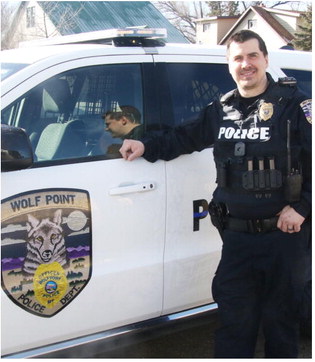Couple Establishes UM Native American Visiting Writer Fund


Native American voices will enjoy a greater prominence at the University of Montana thanks to a new visiting writer fund established by Lois Welch to honor her late husband, acclaimed author James Welch.
UM will use the James and Lois Welch Distinguished Native American Visiting Writer Fund to bring a prominent Native American writer to campus to teach each spring semester. In the future, the position will become endowed through a significant gift included in Lois Welch’s estate plan. The endowment means her gift will be invested and the earnings made available to support the program in perpetuity.
“A gift of this magnitude has never been offered to UM’s creative writing program before, and it will certainly enhance the stature and visibility of the program,” said professor Judy Blunt, chair of the College of Humanities and Sciences Department of English and director of UM’s Creative Writing Program. “But the vision also recognizes the value of literature in both Lois’s and Jim’s lives.”
Lois Welch, who served as a professor of comparative literature at UM and head of the creative writing program, said the $50,000 per year visiting writer fund is a “natural progression” from a number of other ways the Welches have supported UM, its writing programs and the Native American writing community. Their contributions include the Welch Scholarship, which is awarded to creative writing students, particularly undergraduate students of Indigenous descent, and a new James Welch Native American Writers Festival planned for summer 2022.
“Jim would have recognized the tribute and what it can accomplish,” Lois said of the new visiting writer program, “but at the same time he was so humble, he could have never set himself apart.”
Jim Welch spent much of his early years on the Blackfeet Reservation, the homeland of his father, and the Fort Belknap Reservation, the homeland of his mother. His family moved to various places in the country.
Welch is one of the Native authors credited with starting what has been termed “the Native American Renaissance” in the late 1960s, a period lauded for the significant increase in production of literary works by Native American writers.
“When Welch’s ‘Winter in the Blood’ got a frontpage review on The New York Times Book Review, he changed not only Native American literary history, but the American literature canon of masterworks,” said Kathryn Shanley (Nakoda), professor and chair of Native American Studies at UM. “His contributions can be seen today in a new generation of Native and non-Native writers. The Jim and Lois Welch visiting writer fund honors that tremendous legacy and brings Jim’s international achievements back home to Montana. We are grateful for the Welches’ generosity and vision.”
After getting his bachelor’s degree in 1965, Jim Welch enrolled in the then-fledgling Master of Fine Arts program in creative writing. There he would meet his mentor and friend poet Richard Hugo.
“Jim became a writer, thanks to Hugo,” Lois Welch said. “Hugo was a working- class guy and an amazing poet. And Jim thought, ‘if he can do it, I can do it.’ “We don’t give enough attention to the importance of having a role model,” she said. “It’s so important that we have a place where Native Americans can tell their stories and be heard.”
In addition to “Winter in the Blood,” Welch would go on to write other acclaimed works, including “Fools Crow” — which was a staple book in many Montana high school English classes — “The Indian Lawyer” and “Killing Custer: The Battle of Little Bighorn and the Fate of the Plains Indians,” a nonfiction work borne from Welch’s collaboration with filmmaker Paul Stekler on the PBS documentary, ‘’Last Stand at Little Bighorn.”
In his last novel, “Heartsong of Charging Elk,” Welches’ Lakota protagonist goes to France in the Buffalo Bill’s Wild West show. When Charging Elk gets sick and stranded there, he gets caught “between two worlds.” As a writer of Blackfeet- Gros Ventre heritage, Welch understood that position well.
In addition to his critical acclaim in the U.S., Welch’s work was published in multiple languages around the world, and he was particularly popular in France. He frequently traveled abroad, often accompanied by Lois, who speak fluent French and served as his translator. In 1997, Jim Welch was awarded the Chevalier de L’Ordre des Arts et des Lettres medal.
As a UM administrator, Lois Welch, was instrumental in bringing the English department “into the 20th century,” Blunt said, bridging the gap between literature and creative writing and launching the first class on women writers despite some initial pushback from others in the college.
“She was a gift to our department,” Blunt said. “Our success has to do with people like Lois being brave enough to say we are going to do this thing and then doing it.”
The James and Lois Welch Distinguished Native American Visiting Writer residency will start in spring 2023. Those writers selected for the program can be authors of poetry or prose – both genres that Jim Welch mastered – and will teach a graduate creative writing workshop and an undergraduate course in Native American literature, Blunt said.
“Each of our individual English programs and all of our students can benefit from learning about Native American literature from someone who deeply understands it and writes it as well,” she said.
The UM Foundation invites donors to help continue and grow the James and Lois Welch Distinguished Native American Visiting Writer Fund. Visit www. hs.umt.edu/creativewriting/ donate.php to make a gift online or mail a financial gift to the University of Montana Foundation, noting the James and Lois Welch Distinguished Native American Visiting Writer Fund on checks, at P.O. Box 7159, Missoula, MT 59807-7159.
To make a gift over the phone or for questions about giving, call Dan Minor, senior director of development for the College of Humanities and Sciences, at 406-4386364 or email dan.minor@supportum.org.


